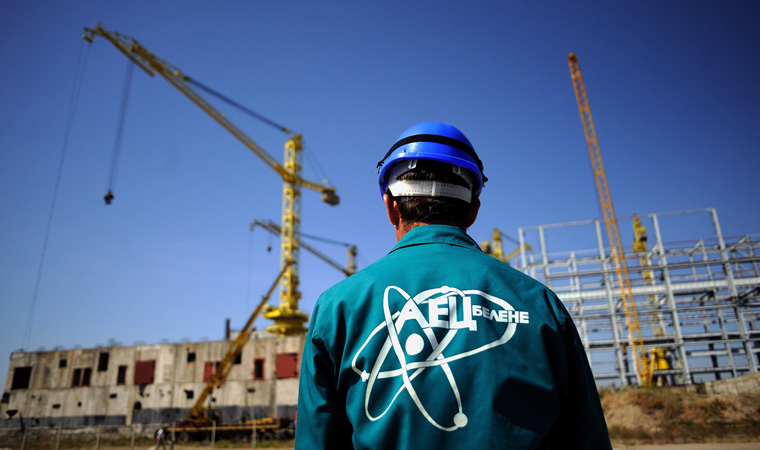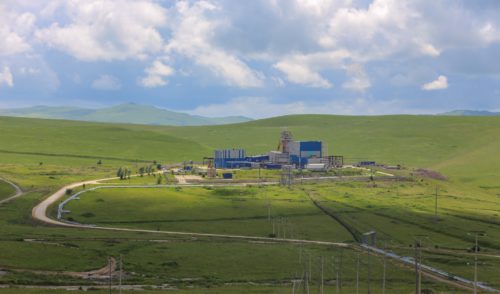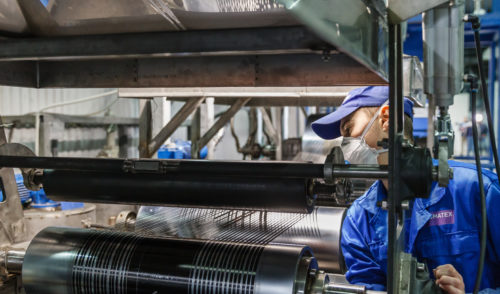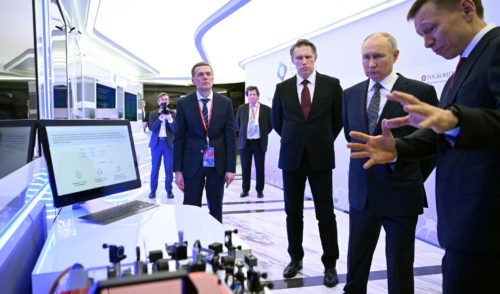
Bulgaria Might Proceed with Belene Project
back to contentsBulgarian authorities are ready to resume the Belene NPP project only if Rosatom takes part in it. This was announced last week on bTV channel by Bulgarian Energy Minister Temenuzhka Petkova. According to her, Sofia considers the prospects for the project, with the reactors manufactured in Russia for Belene to be either sold or used to build Unit 7 at the Kozloduy Nuclear Power Plant. But these options come second after the main scenario, which is completion of the Belene plant, Petkova said.
She reminded that Bulgaria had invested over 3 billion Levs, or nearly 1.5 billion Euro, in the project. A recent report of the Bulgarian Academy of Science on the Belene project directly says that “doing nothing would be the worst scenario”. Petkova noted that the nuclear power plant could be brought online in 2028 or 2029 if the construction started in 2019. But she does not see any possibility of implementing the project without Rosatom, Petkova added.
“Rosatom is a project designer and equipment manufacturer after all. It would be difficult to do anything without Rosatom,” said the Bulgarian Minister. Meanwhile Kirill Komarov, First Deputy CEO of Rosatom, made it clear in an interview to Bulgarian news agency BGNES on the margins of Atomex-Europe 2017 in Budapest that the company was ready to take part in the project as a contractor or, depending on the terms and business model to be chosen by the Bulgarian Government, as a project investor. Komarov also said that the ‘Hungarian model’ adopted for Paks II could be the best option for Bulgaria. The Paks II project is financed with a sovereign loan that was obtained by Hungary at a low interest rate and will be repaid after the nuclear plant is put in operation.
“The most important thing for the country is cheap electricity it needs to develop the national economy and make competitive products with cheap electric power. They want to be competitive on the market by generating cheap electricity. This is their primary goal and the reason why they have chosen to borrow money from another country,” Komarov explained. Akkuyu in Turkey was named another potential model for the Belene project. Russia invests in the Akkuyu Nuclear Power Plant, while Turkey undertakes to buy electric power to be generated by the plant at a relatively high price that will cover costs and risks of the investor. “To be honest, the price is higher than in the Bulgarian market. But their motivation is clear – they are not willing to take any risks because this is the first nuclear power plant in Turkey. Ankara wants the investor to bear risks and are ready to pay for it,” Komarov noted.
According to him, Rosatom’s participation in the Belene project is directly dependent on what the Bulgarian Government decides about the national priorities and needs. “This decision will be taken on the basis of a recently published report of the Bulgarian Academy of Sciences, other expert sources, and public debate. But my opinion is that the best and most promising way for Bulgaria is that chosen by Hungary. In terms of costs and efficiency, this is the best option for Bulgaria,” he said.
When asked for more details on Rosatom’s readiness to take part in the construction of the Belene Nuclear Power Plant if the decision were made to sell the project to private investors, Komarov answered, “As a contractor, we are ready to take part in any form of the project chosen by the Bulgarian Government. But it depends on financial terms and a business model whether we will invest in the project.”
The report prepared by the Bulgarian Academy of Sciences says that the most feasible option for the project is to keep the Government involved and acquire a strategic investor that will provide 70% of finance, with the remaining 30% to be financed with equity. According to researchers, costs of the nuclear plant project will amount to at least 10.5 billion Euro. The document also says that Bulgaria will need new generation capacity after 2047–2050 when the service life of Kozloduy Units 4 and 5 expires. Kozloduy NPP remains the only operating nuclear power plant in the country.




